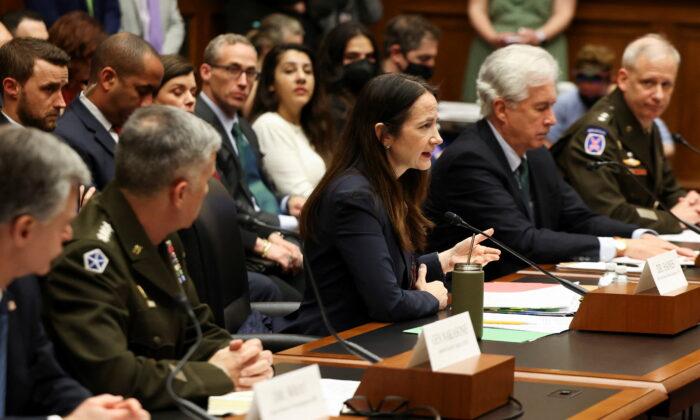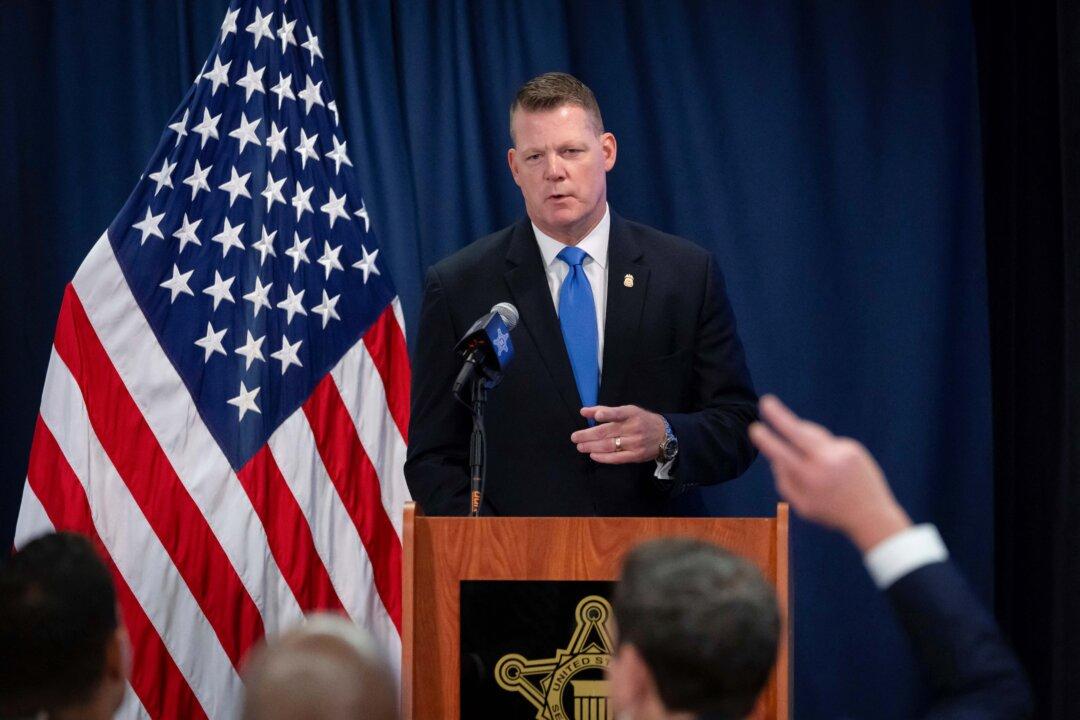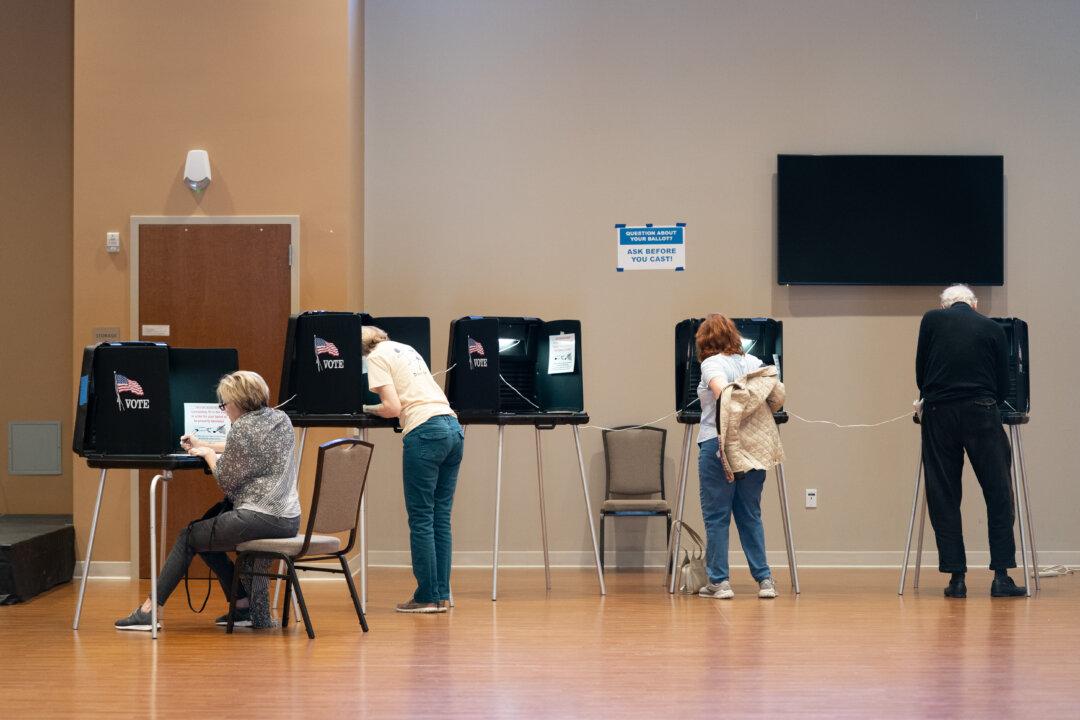U.S. intelligence officials said on March 8 that they’re taking Russian President Vladimir Putin’s nuclear threats seriously.
“It was very unusual. And we obviously take it very seriously when he’s signaling in this way,” Director of National Intelligence Avril Haines told the House Intelligence Committee in Washington.
Such a public announcement hasn’t been seen since the 1960s, according to Haines, describing Putin as “posturing” with the goal of deterring further Western support for Ukraine.
While Russian troops have been met with stiffer resistance than projected, “Putin probably still remains confident that Russia can militarily defeat Ukraine and wants to prevent Western support from tipping the balance and forcing a conflict with NATO,” Haines said.
Rep. Michael Turner (R-Ohio), the top Republican on the panel, later asked Haines whether the United States or NATO allies entering the war could lead to a nuclear conflict.
“We’re watching very closely for movements, anything related to the strategic nuclear forces, and we’re not seeing something at this stage that indicates that he’s doing something different than he has done in the past, and that’s probably as much as I can say,” Haines said.
William Burns, the CIA director, said in the scenario Turner asked about, “Russian doctrine holds that you escalate to deescalate, so I think the risk would rise, according to that doctrine, of, in extremis, the Russian leadership considering the use of tactical nuclear weapons.”
Army Lt. Gen. Scott Berrier, director of the Defense Intelligence Agency, added that Putin “has invested very wisely” in nuclear weapons and that the Russian president “thinks that gives him an asymmetric advantage.”
“I also believe that when he says something, we should listen very carefully and maybe take him at his word. So this question is the one that analysts are pondering right now and I think we really need to do some more work on it,” Berrier said.
Officials said they would go into more detail on the topic behind closed doors after the public hearing concluded.
They also said they believe, in general, that the nuclear threat is increasing as various countries other than Russia threaten to use their nuclear weapons, such as China against Australia.
Rep. Brian Fitzpatrick (R-Pa.) during the hearing wondered whether there’s an incentive for countries to develop such weapons.
“The message we’re sending is, if you have nuclear weapons and you’re crazy, we’re going to stand back on military intervention,” Fitzpatrick said. “I think we need to wrap our brains around that.”





